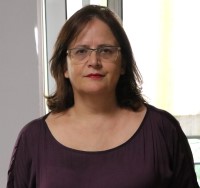In our activities, we always ask some basic questions about infrastructure. And we hear many complaints about lack of water, lack of cleaning water and amortized sewage systems in their villages or cities. They also complain how much they suffer from this lack in their daily lives. Despite the investments made in this sector by the government, and although Albania is rich in water, we still suffer from its lack or lack of clean water.
In Albanian schools, the issue of water scarcity is a major problem in health centers. But the same thing happens in different factories, or companies where hygienic conditions are lacking due to lack of water. Based on this situation I did a gender analysis of the water and sanitation system in Albania and found that we are far from fulfilling Sustainable Development Goal No. 6: Clean Water and Sanitation For All.
The water and sanitation sector documents should be influenced by the National Strategy on Gender Equality and Action Plan 2016 – 2020, and the Ministry of Health and Social Protection in Albania should take the lead in crosscutting gender in this very important sector. To mainstream gender in the water and sanitation sector, the Albanian Government should ensure a national gender disaggregated research study to inform national policy responses to gender issues in the water and sanitation sector at country level. Since the Government of Albania is under the preparation of the National Strategy on Water and Sewage system, they must include gender objectives and achievable indicators.
The empowerment of women and girls must be done through education for gender equality and against gender-based violence, poverty eradication, women empowerment in politics and decision making, who once in power must immediately deal with women’s and children’s rights. We as activists and feminists must lobby and advocate for the basic practical needs of women such as safe drinking water and hygienic sanitation facilities as a precondition for health and for success in the fight against poverty, hunger, child deaths and gender inequality.

